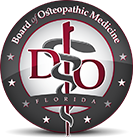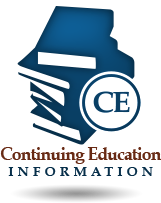HB 81 - Health Care for Children
Effective Date: July 1, 2020
HB 81 (Full Text)
Summary:
The bill creates section 456.0496, Florida Statutes, requiring certain health care practitioners to ensure that the informational pamphlet on the screening for, and treatment of, preventable infant and childhood eye and vision disorders is provided to parents after a planned out-of-hospital birth. Click here to access the informational pamphlet.
HB 743 - Nonopioid Alternatives
Effective Date: July 1, 2020
HB 743 (Full Text)
Summary:
The bill revises the requirements for certain health care practitioners providing an opioid drug listed as a Schedule II controlled substance to inform the patient about possible nonopioid alternatives, discuss the advantages and disadvantages of nonopioid alternatives, and provide the pamphlet as required in section 456.44, Florida Statutes by:
- Requiring that the pamphlet provided to the patient be printed;
- Authorizing a health care practitioner to discuss non-opioid alternatives with, and provide the pamphlet to, the patient’s representative rather than the patient;
- Specifying that only those health care practitioners ordering or prescribing or providing care that requires the administration of anesthesia using an opioid must meet the requirements and removing the requirement to address non-opioid alternatives when a drug is dispensed or administered; and
- Exempting health care practitioners providing hospice services and providing care in a hospital critical care unit or emergency department from the requirement to discuss non-opioid alternatives with a patient or the patient’s representative and provide a printed copy of the pamphlet.
Click here for more information and access to the pamphlet.
SB 698: Reproductive Health
Effective Date: July 1, 2020
SB 698 (Full Text)
Summary:
The bill requires the Department of Health (DOH), the Board of Medicine, or the Board of Osteopathic Medicine may take disciplinary action against the health care practitioner’s license if he or she intentionally transfers an embryo or reproductive material into a recipient without the recipient’s consent. Additionally, the DOH may issue an emergency order suspending the practitioner’s license if he or she is found guilty of committing the felony of reproductive battery, which is discussed below.
The bill also requires a health care practitioner, a medical student, or any other student who is receiving training as a health care practitioner to obtain the written consent of a patient or a patient’s representative before performing a pelvic exam. Written consent for the pelvic exam is not required if a court orders the exam to collect evidence or if the exam is necessary to avert a serious risk of irreversible impairment of a major bodily function of the patient.
The bill creates the crime of reproductive battery. It is a third-degree felony for a health care practitioner to intentionally transfer human reproductive material into the body of a recipient or implant a human embryo of a donor, knowing that the recipient has not consented to the use of the reproductive material or embryo from that donor. If the health care practitioner is the donor of the reproductive material, the penalty is increased to a second-degree felony.
The statute of limitations for prosecuting the crime of reproductive battery does not begin to run until the date that the violation is discovered and reported to a law enforcement agency or any other governmental agency. Additionally, it is not a defense to the crime that the recipient consented to the use of an anonymous donor.
HB 115 – Keep Our Graduates Working Act
Effective Date: July 1, 2020
HB 115 (Full Text)
Summary:
The bill prohibits the Department of Health (DOH) from denying the issuance of, refusing to renew, suspending, or revoking a professional license based solely on the licensee being delinquent on a payment of or defaulting on his or her student loans. The bill removes the specific provision allowing DOH to discipline a health care practitioner for failing to repay a student loan and the associated mandatory discipline. The bill repeals the requirement that DOH must issue an emergency order suspending a health care practitioner’s license for a student loan default, absent timely proof of a new repayment plan. Additionally, the bill repeals the requirement that DOH must obtain a monthly list from the United States Health and Human Services (USHHS) of the health care practitioners who have defaulted on their student loans.
HB 713 – Department of Health
Effective Date: July 1, 2020
HB 713 (Full Text)
Summary:
The bill amends numerous practice acts to streamline regulation and increase efficiency. The bill makes numerous updates and changes to programs and health care professions regulated under the boards and Department of Health (DOH):
- The bill grants rulemaking authority to DOH for responsibilities relating to maximizing the use of existing programs and coordinating stakeholders and resources to develop a state strategic plan, including the process of selecting physicians under the Conrad 30 Waiver Program, and to encourage qualified physicians to relocate to Florida and practice in medically underserved and rural areas;
- Requires an applicant for a health care professional license to provide his or her date of birth on the application;
- Revises the DOH’s health care practitioner licensing provisions to permit the DOH to issue a temporary license, that expires in 60 days instead of 30 days, to a non-resident or non-citizen physician who has accepted a residency, internship, or fellowship in Florida and has not yet received a social security number;
- Creates an exception to the 15-percent cap for self-referral for diagnostic imaging services normally imposed on solo or group practice settings for group practice entities that own an accountable care organization or an entity operating under an advanced alternative payment model, according to federal regulations, if such entity provides diagnostic imaging services and has more than 30,000 patients enrolled per year;
- Repeals a health care practitioner’s failure to repay student loans as grounds for discipline by the DOH;
- Authorizes the DOH to issue medical faculty certificates to certain full-time faculty members of Nova Southeastern University and Lake Erie College of Osteopathic Medicine;
- Repeals the requirement that the Board of Medicine (BOM) conduct a triennial review of organizations that board-certify physicians in dermatology;
- Revises the composition of the Council on Physician Assistants, under the BOM, from four physicians and one physician assistant, to two physicians and three physician assistants;
- Revises the requirements for osteopathic internships and residencies to include those accredited by the Accreditation Council for Graduate Medical Education;
- Deregulates registered chiropractic assistants;
- Effective upon the bill becoming a law, allows a nursing education program seeking accreditation to apply to the Board of Nursing (BON) for a single extension of not more than two years if the program meets specific criteria and grants the BON rulemaking authority on criteria to qualify for the extension;
- Grants rulemaking authority to the BON to establish standards of practice, including discipline, for certified nursing assistants (CNA);
- Recognizes CNA certification in a U.S. territory or the District of Columbia for certification in Florida and eliminates the element of intent for violations of the practice act by CNAs;
- Defines the supplemental general dentistry education required for dental licensure applicants who have not graduated from a dental school accredited by the American Dental Association Commission on Dental Accreditation to exclude education in an advanced dental specialty;
- Repeals the requirement that dental and dental hygienist licensure examinations must be graded by Florida-licensed dentists and dental hygienists;
- Effective upon the bill becoming a law and applying retroactively to January 1, 2020, revives, reenacts, and amends statutory provisions relating to health access dental licenses, notwithstanding their sunset on January 1, 2020;
- Requires dentists and dental hygienists to report adverse incidents to the Board of Dentistry (BOD) and gives the BOD rulemaking authority;
- Authorizes an employee or independent contractor of a dental laboratory to engage in onsite consultation with a licensed dentist during a dental procedure and requires a dental laboratory to be inspected at least biennially;
- Requires an athletic trainer to work within his or her scope of practice as defined by the Board of Athletic Training and revises the educational and internship requirements for licensure;
- Requires the DOH to issue a single prosthetist-orthotist license to qualified applicants and establishes the educational requirements for duel registration;
- Revises massage therapy licensure requirements to:
- Repeal Board of Massage Therapy (BMT) departmental examinations and require a BMT-specified national examination;
- Eliminate massage apprenticeships as a path to licensure by 2023; and
- Revise the definition of a massage therapy “apprentice” to include only those persons approved by the BMT to study colonic irrigation under a licensed massage therapist;
- Updates the name of the accreditation body for psychology programs and revises the requirements for psychology licensure;
- Limits the Board of Clinical Social Work, Marriage and Family Therapists, and Mental Health Counseling to the issuance of only one additional internship registration;
Revises the education, clinical, and licensure requirements for marriage and family therapists and licensed mental health counselors, including updating the program accrediting agencies;
SB 404 - Abortion
Effective Date: July 1, 2020
SB 404 (Full Text)
Summary:
The bill prohibits a physician from performing an abortion on a minor unless the physician has received a notarized, written consent statement signed by the minor and her mother, father, or legal guardian and the physician has been presented with proof of identification and proof of parentage or guardianship by the parent or legal guardian. However, the consent requirement does not apply if:
- Notice is not required under specified exceptions to the parental notice requirement; The abortion is performed during a medical emergency when there is insufficient time to obtain consent;
- The parent or guardian has waived the right to consent; or
- The minor petitions the circuit court where she resides and receives a judicial waiver of parental consent.
The bill also authorizes a third-degree felony penalty for a physician who recklessly or intentionally performs, or attempts to perform, an abortion on an unemancipated minor without the required consent. The bill also increases the penalty for violating requirements established for infants born alive in section 390.0111(12), Florida Statutes, from a first-degree misdemeanor to a third-degree felony.
SB 354 - Immunization Registry (2019)
Effective Date: January 1, 2021
SB 354 (Full Text)
Summary:
This is a 2019 Bill.
In accordance with Section 381.003, Florida Statutes, effective January 1, 2021, all health care practitioners licensed under chapter 458, chapter 459, or chapter 464 in this state who administer vaccinations or causes vaccinations to be administered to children from birth through 17 years of age is required to report vaccination data to the immunization registry, Florida SHOTS, unless a parent or guardian of a child has refused to have the child included in the immunization registry by meeting the requirements identified in 381.003(e)2., F.S. In addition, practitioners who administer vaccinations or causes vaccinations to be administered to college or university students from 18 years of age through 23 years of age at a college or university student health center or clinic is required to report vaccination data to the immunization registry, Florida SHOTS, unless the student has refused to be included in the immunization registry by meeting the requirements in 381.003(e)3., F.S. Please see Section 381.003 for all statutory changes.





